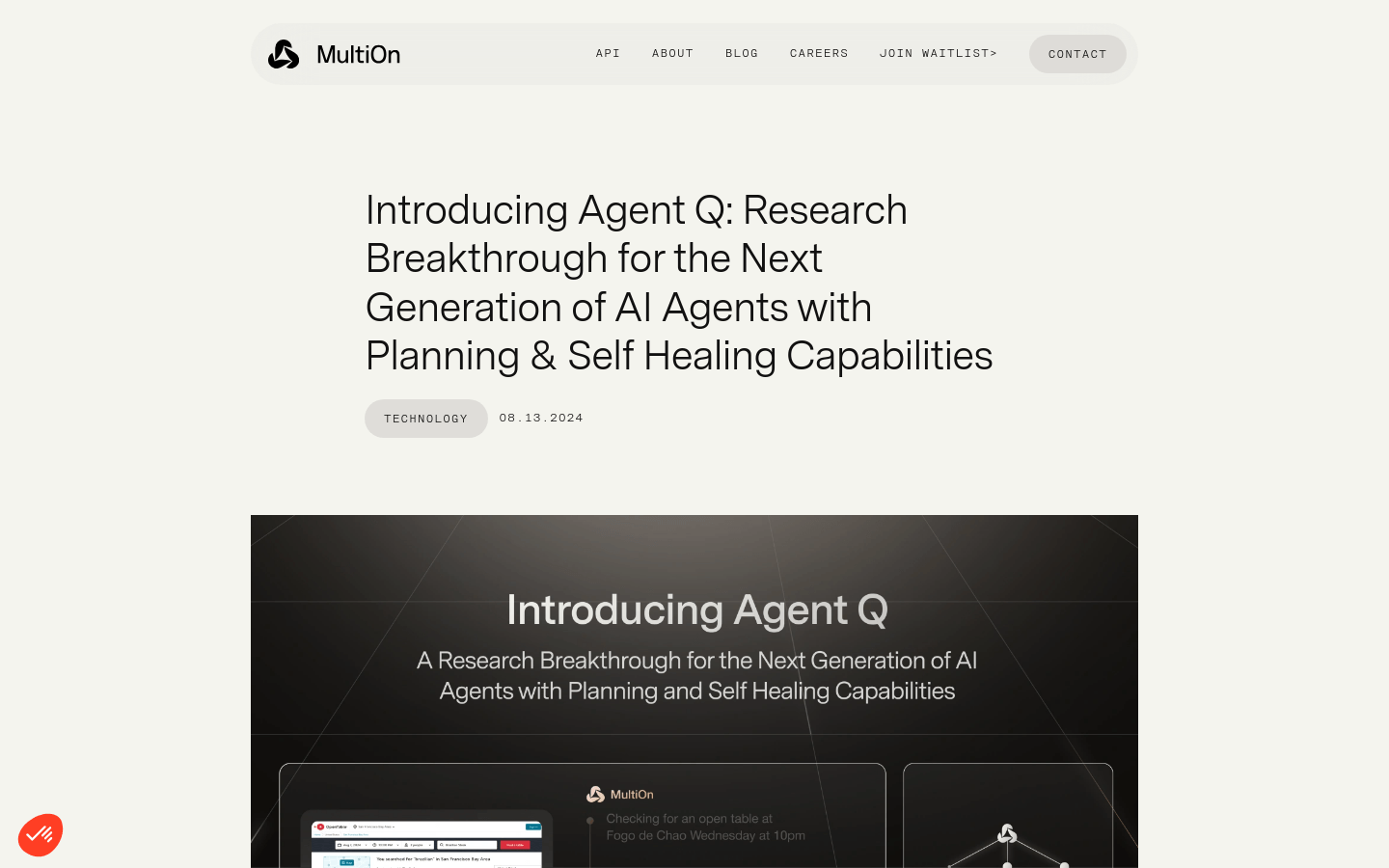

Agent Q
Overview :
Agent Q is the next-generation AI agent model developed by MultiOn. By integrating search, self-criticism, and reinforcement learning, it creates advanced autonomous web agents capable of planning and self-repair. It addresses the challenges of traditional large language models (LLMs) in multi-step reasoning tasks within dynamic environments, enhancing success rates in complex scenarios using guided Monte Carlo Tree Search (MCTS), AI self-criticism, and Direct Preference Optimization (DPO) algorithms.
Target Users :
Agent Q targets developers and consumers, especially those who need to perform multi-step reasoning and decision-making in dynamic and complex environments. For instance, it can be utilized for automated web navigation, data analysis, and executing complex tasks, thereby enhancing efficiency and accuracy.
Use Cases
In reservation experiments conducted on Open Table, the success rate reached 95.4%.
Developers can utilize Agent Q for complex web data collection and analysis tasks.
Consumers can use Agent Q for automated online booking and inquiry services.
Features
Guided Search and MCTS: Autonomously generate data, explore different actions and web pages, balancing exploration and exploitation.
AI Self-Criticism: Provide feedback at each step, optimizing the decision-making process, crucial for long-term tasks.
Direct Preference Optimization (DPO): Fine-tune the model using preference pairs derived from MCTS-generated data.
Reinforcement Learning: Train the model using human feedback, enhancing its generalization ability for multi-step reasoning tasks.
Autonomous Data Collection: Significantly improved zero-shot performance of the LLaMa-3 model during reservation experiments conducted on Open Table.
Online Search Integration: Further enhanced the model's success rate in complex environments.
How to Use
1. Register and obtain access to Agent Q.
2. Set the task objectives and parameters of Agent Q based on your needs.
3. Launch Agent Q for autonomous data collection and task execution.
4. Monitor Agent Q's performance and make adjustments based on feedback.
5. Utilize the outputs from Agent Q for further analysis or decision-making.
Featured AI Tools

Alice
Alice is a lightweight AI agent designed to create a self-contained AI assistant similar to JARVIS. It achieves this by building a "text computer" centered around a large language model (LLM). Alice excels in tasks like topic research, coding, system administration, literature reviews, and complex mixed tasks that go beyond these basic capabilities. Alice has achieved near-perfect performance in everyday tasks using GPT-4 and is leveraging the latest open-source models for practical application.
AI Agents
458.4K

Feshua Smart Assistant
Feshua Smart Assistant is an intelligent assistant product that allows users to choose their favorite avatar, set a name, and remember user behavior on Feshua. It supports the deployment of business applications on Feshua, enabling cross-system task completion and a unified user experience. The product aims to enhance work efficiency and creativity, serving as a new type of digital employee for enterprises.
AI Agents
205.6K













